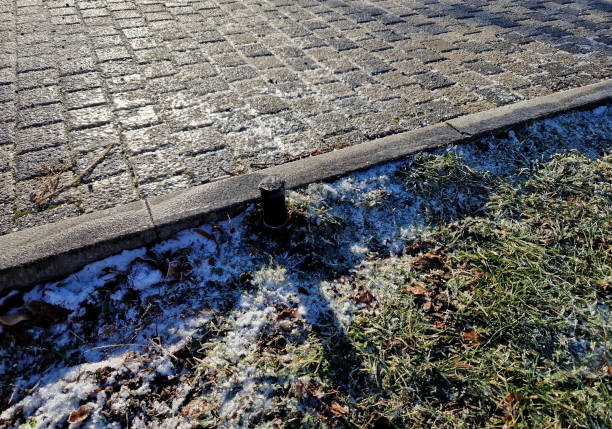Deck the Halls, Not Your Home with Pests: Holiday Decorating Tips
The holiday season is a time for joy, gatherings, and festive decorations. However, it can also be an open invitation for unwanted pests to enter...
2 min read
Savanna Fiegl
:
11/11/24 12:14 PM

As winter approaches, preparing your irrigation system is crucial to avoid costly repairs and ensure it’s ready to go when spring returns. Freezing temperatures can cause water left in the system to expand, leading to cracked pipes, damaged valves, and other issues. To help you avoid these problems, we’ve put together a comprehensive guide on how to winterize your irrigation system.
The first step in winterizing your irrigation system is to turn off the water supply. Locate the main valve that controls water to your irrigation system and shut it off. This prevents any water from entering the system during the winter months, which can freeze and cause damage.

Draining the system is essential to remove any water that could freeze inside the pipes. Depending on your system, you may need to use one of the following methods:
Manual Drainage: If your system has manual drain valves, open them to release the water. Start with the valve located highest in the system and work your way down to the lowest point. This ensures all the water is completely drained.
Automatic Drainage: Some irrigation systems are equipped with automatic drain valves that open when the pressure drops below a certain level. To trigger these valves, turn on one zone at a time until the water stops flowing.
Blow-Out Method: For systems that require a more thorough draining, the blow-out method is the most effective. This method involves using an air compressor to blow out any remaining water in the pipes. It’s recommended to hire a professional for this method, as it requires careful handling to avoid damaging the system. If you do it yourself, be sure not to exceed 50 PSI to prevent pipe damage.
The backflow preventer is a crucial component of your irrigation system that prevents contaminated water from flowing back into your home’s drinking water supply. To protect it from freezing, insulate the backflow preventer and any above-ground piping. You can use insulation tape, foam pipe covers, or even wrap them with blankets. Additionally, disconnect and drain any attached hoses.
If you have an automatic irrigation controller, it’s important to shut it down for the season. Most controllers have a “rain” or “off” setting that retains your programmed settings while preventing the system from running. This ensures you won’t accidentally water your lawn during freezing temperatures.

Before the cold weather hits, take the time to inspect your irrigation system for any signs of damage or leaks. Addressing these issues now will save you from larger problems come spring. Look for cracked pipes, damaged sprinkler heads, or any other components that may need attention.
Exposed pipes, valves, and other components are vulnerable to freezing temperatures. Cover them with insulation materials or protective covers designed specifically for irrigation systems. This extra layer of protection will help prevent freezing and cracking during the winter months.
Finally, it’s a good idea to document the layout of your irrigation system, including the locations of valves and other important components. This will make it easier to restart the system in the spring and will be helpful if any repairs are needed after winter.
Winterizing your irrigation system is a critical step in maintaining its longevity and ensuring it’s ready for the next growing season. By following these steps, you can protect your system from the damaging effects of freezing temperatures and avoid costly repairs. Taking the time to prepare now will give you peace of mind and a smooth start when it’s time to water your lawn again in the spring.

The holiday season is a time for joy, gatherings, and festive decorations. However, it can also be an open invitation for unwanted pests to enter...

Spring is the perfect time to give your lawn some extra attention as it emerges from winter. While Top Turf’s Fertilization and Weed Control Program...

As the temperatures cool and the days get shorter, many homeowners assume that lawn watering is no longer necessary. After all, summer’s blazing sun...